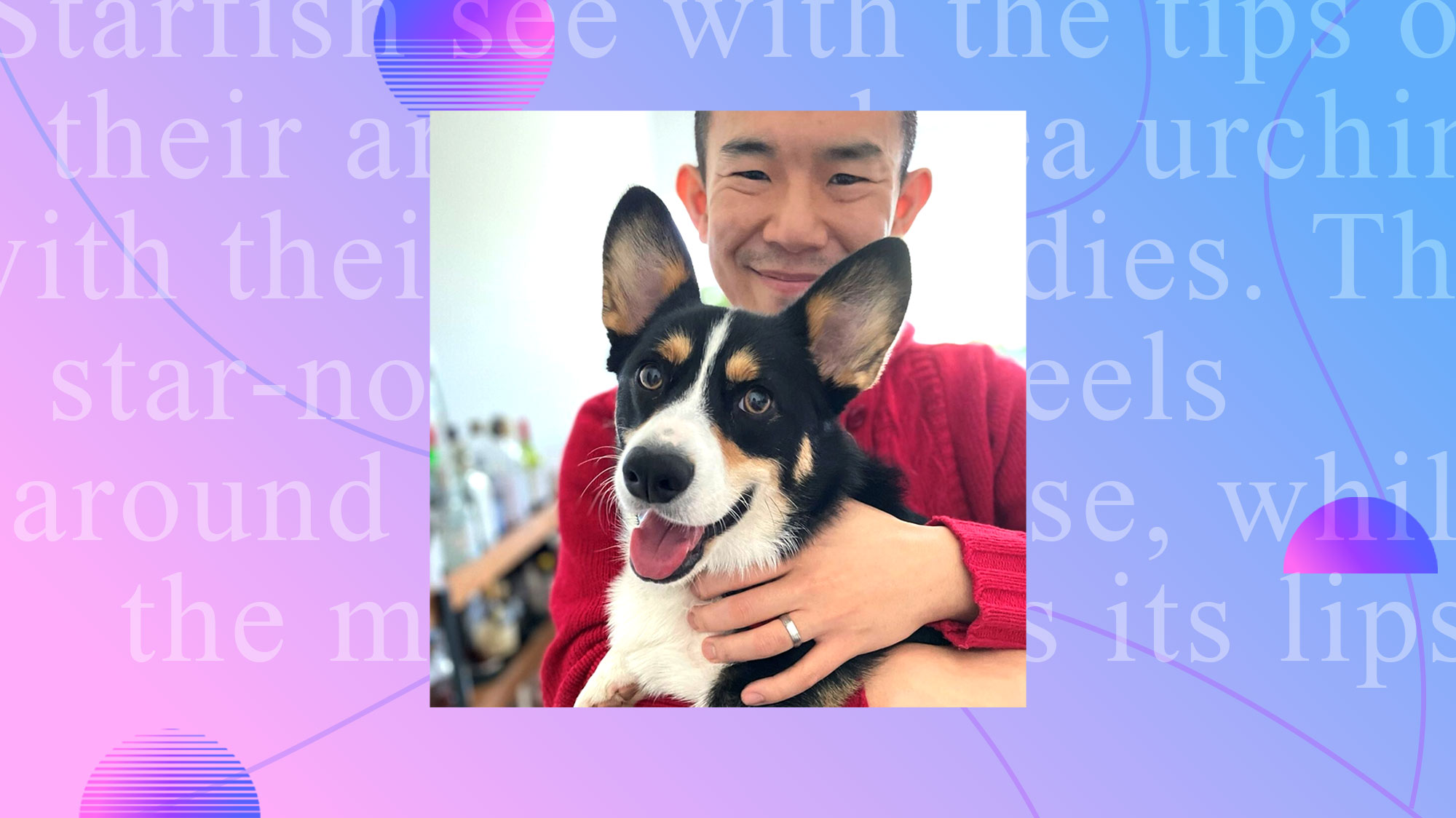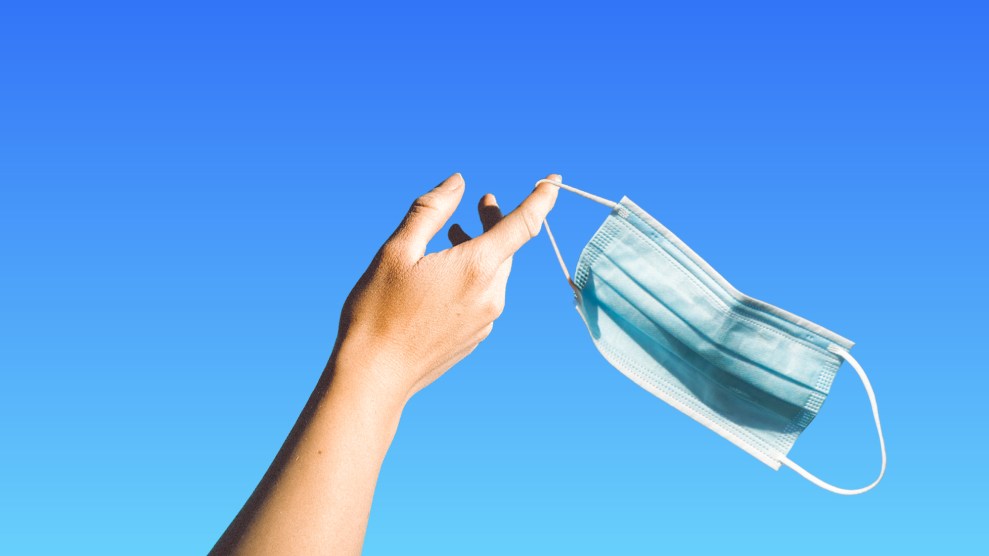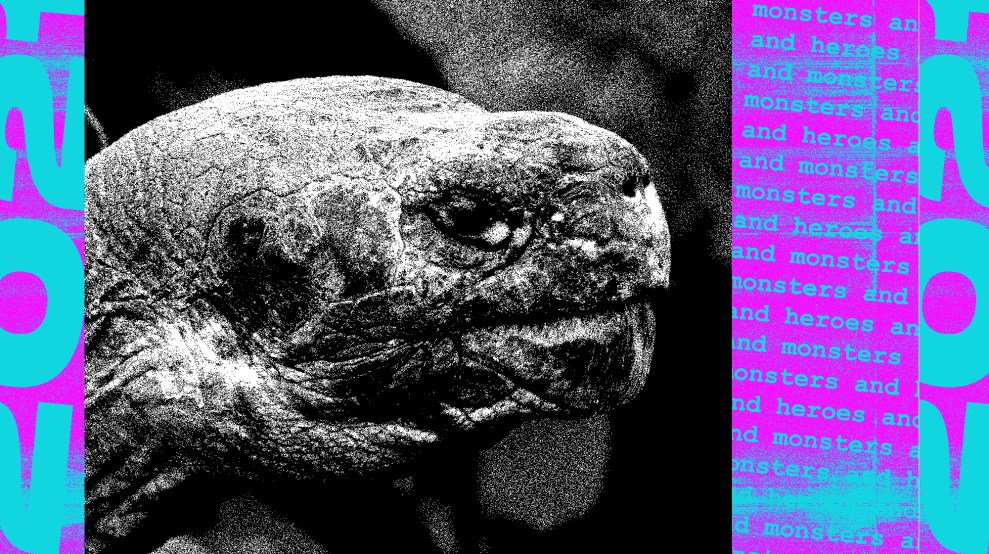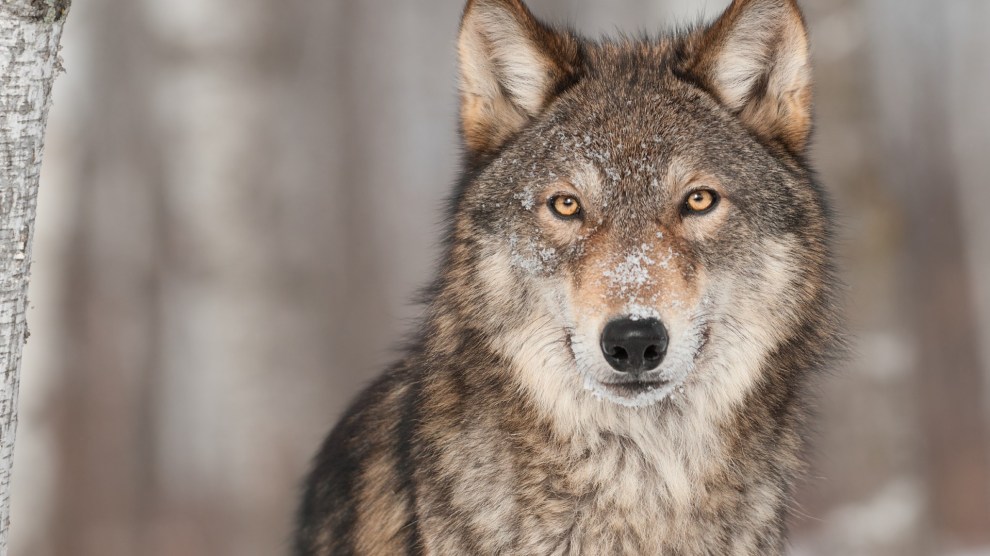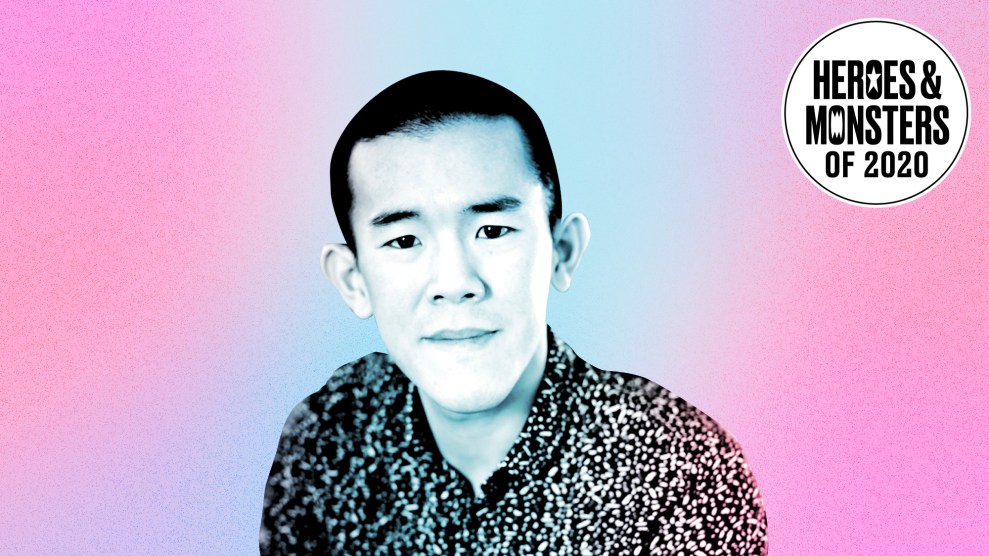The catfish, it turns out, is one hell of a taster. And I don’t mean that they are good-tasting, as in, fried, battered, and served on a baguette. (I’ll leave that distinction up to you.) I mean, catfish are really good at tasting. As science journalist Ed Yong explains in his new book, An Immense World, these fish are basically swimming tongues: Their smooth, slimy bodies are covered in taste buds, giving them the ability to sample the flavor of anything they touch. “If you lick one of them,” he writes, “you’ll both simultaneously taste each other.” Or, as one physiologist told Yong, “If I were a catfish, I’d love to jump into a vat of chocolate. You could taste it with your butt.”
An Immense World is full of delightful and fascinating animal profiles like this. While you may know Yong from his Pulitzer Prize–winning Covid writing for the Atlantic, the book takes him back to the kind of science reporting he did so often before the pandemic, as a self-described “nerdy outsider who writes about quirky nature stuff.” Much of the book, which comes out June 21, focuses on animals’ ability to perceive the world—through smell, taste, sight, touch, sound, surface vibrations, echoes, magnetic fields, and more—from ants to elephants to Yong’s own corgi, Typo. I learned, for instance, that zebras may have evolved to be striped not to ward off lions or hyenas, as I’d heard before, but disease-carrying flies! And that the blue and yellow coloring of a reef fish may stand out to us, but to predators, their colors act as camouflage, blending in with the water and corals. And that some scientists theorize that migratory birds may be able to see the Earth’s magnetic field using magnetoreceptors in their eyes.
But the book isn’t just a gift to science nerds and animal lovers (your girl is guilty on both counts). It’s also a call-to-action, a plea to, as Yong puts it, “preserve the dark” and “save the quiet.” In the final chapter, Yong asks the reader to consider the harms of sensory pollution—an environmental problem that, unlike so many others we face today, can be “immediately and effectively addressed.” Turn off the lights, and we instantly reduce light pollution. Stop the honking, whirling, and beeping—and with it, goes the noise. (We effectively accomplished this in early 2020, Yong notes, when pandemic lockdowns meant the world was much quieter and darker.)
Much like how nature needed a reprieve from us humans, An Immense World was an essential reset for Yong himself. At the end of 2020, when Yong announced via Twitter he was going on book leave, he wrote, “This year has been the most professionally meaningful of my life, but it has also shredded me.” He needed a break.
When I called him last month, Yong told me that this book (his second, after the 2016 bestseller I Contain Multitudes) felt like a “salve for the soul” to write. “I’m feeling pretty burnt out now,” he said. “But I think I would be catastrophically so if I hadn’t taken a break and existed in this much happier, more joyful headspace for a while.” He hopes that the same feeling extends to readers, especially now, after more than two brutal years of Covid. “We could all use a little bit more joy right now,” he said.
Over the course of almost an hour, we talked about how covering Covid can be particularly taxing, the importance of empathy, and the perplexing minds of octopuses (and yes, according to Yong’s book, it is octopuses or octopodes, not octopi). You can read our conversation, edited and condensed for clarity, below.
I want to start with the idea for the book. You shared on Twitter that the idea came from your wife, Liz. You said, “This book was her gift to me and also mine to her.” Could you talk a little bit more about that, and how the idea of writing about animal perception originated?
The origin of the book really dates back to a London cafe, I think it was late 2018. It was a rainy day and sort-of winter. I get these periodic bouts of self-flagellation in the winter. I usually get super morose and start claiming that my career is over and I have no good ideas left. And I was sort of bemoaning the fact that I didn’t have an idea for a second book, and that writing about weird animal biology felt like maybe it wasn’t rising up to the challenges of the moment. And Liz gave this very impassioned speech about how telling people about nature and making them feel connected to the natural world is actually more important than ever, and that maybe I should write a book about the ways animals perceive the world. And when she said it, it just sort of made sense.
What do you mean when you say you weren’t sure if writing about weird animal biology rose up to the challenges of the moment?
I’ve written about lots of topics in my career, but a lot of the things that I’ve loved writing about are how animals behave. A lot of weird nature stories. And in an era of mass extinction, climate change, and, obviously, pandemic risk, there had always been a question in my mind of, Is this work of service to our society in a moment of multiple, overlapping crises? And I think that my answer to that is actually, yes. I think it is. The natural world is in peril. And we won’t muster the societal will to protect it if we don’t care about it.
What’s unusual about the book is that you wrote half of it before the pandemic and half during the pandemic. What was that process like? How did the pandemic affect the final product?
Most of the reporting had been done [before Covid]. There were a few trips that I had planned that had to be canceled. But most of the writing wasn’t actually that profoundly influenced by the pandemic, other than it went a lot faster. I think you wrote [in 2020] that I was producing feature articles for the Atlantic “like they were samples at Trader Joe’s.” [Editor’s note: You can read that piece here.] So doing that, getting a lot of practice—long-form is a muscle. You can absolutely build it up. So when I started writing the second half of the book, it just flew. It really flew.
At the time you announced your book leave, you said that covering Covid was like “staring into the sun” and that you “needed to blink.” Was it as much of a reprieve as you hoped or expected it to be?
Yeah, very much so. I’ve joked that it says a lot about what it’s like to cover Covid that writing half a book in four months felt like going to a spa. It was a massively restorative activity, which is, I think, not how the vast majority of writers think about the process of writing a book. But it did feel like that to me. It gave me joy. It gave me a sense of wonder about the world at the moment when it felt like the world was collapsing, or the natural world was just repeatedly kicking us in the ass.
We, of course, do still need to grapple with the problems that we’re facing. And no, I don’t think looking away is a long-term solution. But I think that we could all use a little bit more joy right now. I think that’s crucial for our mental health. And I hope this book will deliver that to people.
Over the last two years, you’ve built up an audience that knows you for your writing on Covid. How do you hope or anticipate that this book will land among the people that know you as Ed, “Covid writer”?
I don’t know. My wife, Liz, will laugh at me for this because she correctly notes that I have a massive tendency to underestimate my own accomplishments. So my knee-jerk reaction is to think, Oh, well, none of the however-many people who know me because of the pandemic will want to read this book. But I don’t think that’s true. I hope they will.
Certainly, in terms of topic, it’s going to be a very different experience. More joyful, less grim. But there are still threads that carry through. With pandemic writing, I tried to make it as beautiful and lyrical as possible. I felt like there was a pact between me and the reader: I know this is really horrible. So I’m going to make the reading experience as pleasant as possible for you. And I hope that that effect will be even heightened for the book because the subject matter is itself beautiful and joyful.
A lot of the book, for me, was really trippy. For example, what we see as “color” is really just our brain’s translation of light wavelengths our eyes are picking up. And then on top of that, there are animals that see more colors, or more dimensions of color, than we do. And that realization just made me extremely aware of my own sensory limitations. It’s almost like, large swaths of the animal kingdom are having a party that I’m not invited to. Did you experience anything similar?
Oh, yeah, absolutely. Repeatedly throughout the book, I think the reason why it feels trippy to you is that it feels trippy to me. I very much tried to put that on the page. The colors that we see are different from colors that other animals see. So what color is a sunflower, right? It looks yellow to me, but to a bee, it’s got an ultraviolet bullseye. And birds have tetrachromatic visions: There are four classes of color-sensing cells in their retinas. We have three, meaning they see a much wider variety of colors than we do. It also means that our white is not bird white. And that kind of blows my mind. You just find yourself asking yourself these stupid questions like, What even is white?
I’ll give you another example. In the chapter on heat, we learn that we have specific receptors that detect hot and cold and we have thresholds for what we deem to be hot. Other animals have different senses with different thresholds. So let me ask you this, is ice cold?
I don’t know anymore.
It’s a ludicrous question to ask because the answer is yes for me, but no for, say, a cod. Because they just don’t have the same sensors that detect cold in a painful way. And that’s wild to me.
At one point in the book, we get a glimpse of what echolocation might feel like. You interview Daniel Kish, a man who is blind and uses echolocation to get around. I really liked that section, and it made me wish we could interview animals in the same way. So let’s say you could speak to any animal and have them sit down for an interview. What animal would you want to hear from most and what would you ask them?
I maybe want to say mantis shrimp because I’m so fascinated by them. I genuinely don’t know how their eyes work. But I kind of think that mantis shrimp [which are known for punching their prey] would be dicks to interview, just very aggressive. I don’t think it’d be a fun experience.
[pauses] Hmmm.
Octopus? It might be the octopus. The octopus has this incredibly weird setup where the majority of its neurons are in its arms. The arms do taste and touch with their suckers, and are partially independent of the brain. The brain does vision. How much do the arms and brain talk to each other? Where is the intelligence of the octopus? That’s very fascinating and kind of “galaxy-brain” to think about.
But I think that the lesson from the Daniel Kish section is that, even if you’re the same species and you speak the same language, it’s still unachievable [to know what he’s experiencing], which is kind of bonkers, right? Kish lost his eyesight at a really young age. He doesn’t remember what it’s like to see. But he still talks in visual metaphors because our language is full of them. He can describe what it’s like to echolocate to me. But are we saying the same things? Like, when he says that something is “bright” does that mean the same thing to him as it does to me? Maybe not. So even despite the massive advantage that we have, there is still this uncrossable chasm between our sensory worlds. It really drives home the nature of this challenge, and the humility and imagination you need to approach this entire topic with.
On Twitter, you wrote that the book is about “radical acts of empathy” and “perspective-taking”—in this case, the perspective of animals. And you “can’t help but feel that it’s relevant in a world where the lack of those qualities has cost us so dearly.” Can you talk a bit more about that?
I’ve argued repeatedly that a lot of Americans have moved on from the pandemic prematurely because they’ve accepted the fact that it disproportionately affects marginalized groups of people, whether it’s the elderly, poorer people, Black and Brown people, the sick and immunocompromised, or disabled people. And I think part of that is this sort of catastrophic failure of empathy of trying to understand what it’s like to live a life that’s very different from your own. We’ve seen this throughout the pandemic. I’ve seen people talk about unvaccinated people in the most grossly dehumanizing ways, casting them as all, like, evil idiots who deserve to die, when, in fact, there are so many reasons for whether people are vaccinated or not. I’ve seen people discount the experiences of long haulers and health care workers and immunocompromised people and people who’ve lost loved ones to Covid.
I’m not naive enough to think that reading a book about amazing animals is going to make people less ableist or racist or classist. My book isn’t going to fix inequality. But I hope that it gets people more used to the idea of thinking outside their own lived experiences. The beguiling thing about our subjective experience with the world is that it feels total. It’s all we get, so we think it’s all there is to get. But it’s not. And the book is an argument for why that is. And I hope that is a lesson that people will take into other aspects of their lives, too.
